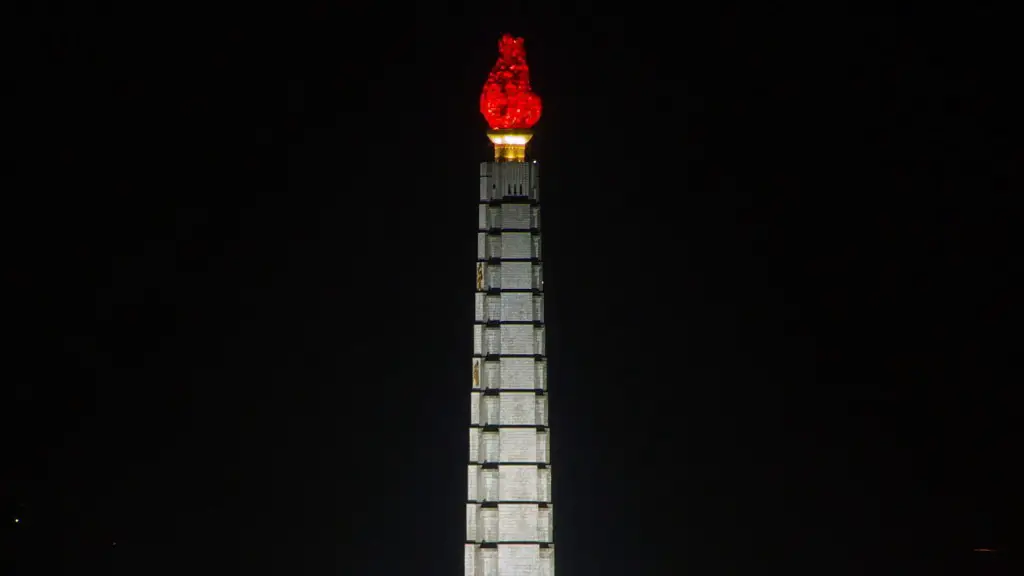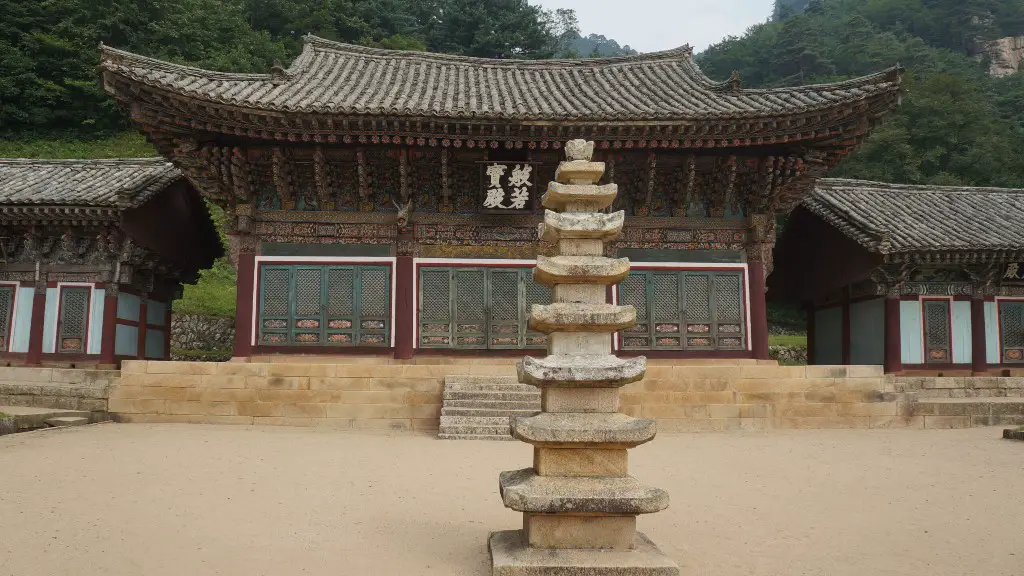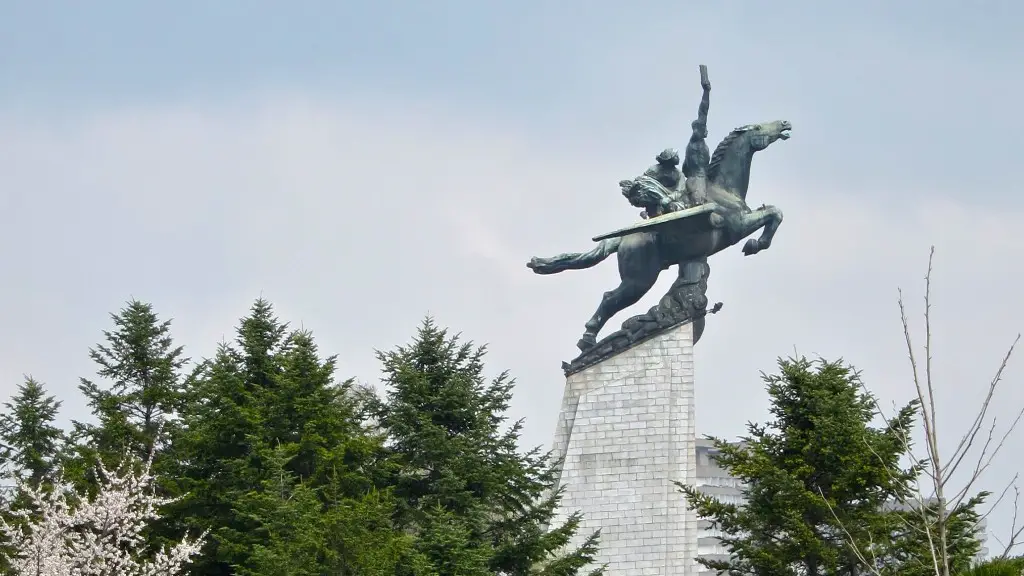The Impact of International Sanctions and the Limitations of Kim Jong Un
North Korea has been an international pariah since its founding in 1948. After decades of official secrecy, the international community has become increasingly aware of the precarious political, economic, and social stability in the isolated country. The economic sanctions enforced by the United Nations have rendered North Korea even more severely isolated, and have made it difficult for the impoverished country to acquire the resources needed to sustain its citizens. Yet despite the various attempts of the international community, North Korea still persists as one of the world’s few remaining authoritarian states.
Kim Jong Un has been the leader of North Korea since 2011, but his control over the country has been called into question. Although he is believed to hold the majority of the power in the country, North Korea is still largely controlled by its ruling party, the Korean Workers’ Party (KWP). This means Kim Jong Un is able to implement changes only with the support of the KWP. His inability to act independently of the KWP has limited the potential for significant reforms in North Korea.
North Korea’s economy has been severely hampered by decades of international sanctions. This has resulted in the growth and modernisation of the economy being stifled, and the resources needed to sustain the population have become increasingly scarce. The near-complete economic isolation of North Korea has left the citizens of the country with limited access to markets and industries, further limiting economic growth through shortages of resources. This has resulted in an increasingly unstable economic situation, with the average citizens facing high levels of poverty.
The economic situation in North Korea has been further exacerbated by the threat of nuclear weapon proliferation. The nuclear weapons stored in the country threaten to spark a global conflict that would further damage the economy and destabilise the political situation. The United States and countries of the United Nations Security Council have issued several rounds of sanctions on North Korea in response to its nuclear weapons programme, but these have failed to halt or reverse the development of the weapons.
Meanwhile, the international community’s attempts to impose government reform in North Korea have been largely unsuccessful. The country remains largely closed off to people from the outside world, which has curtailed the ability of other countries to support or encourage political reform. Furthermore, the North Korean government has successfully clamped down on dissent through a network of detention camps and restrictions on free speech.
In light of these numerous challenges, it is difficult to predict when North Korea may inevitably collapse. Many analysts believe that the collapse of the regime is inevitable, but there is no consensus on how long this may take. Nevertheless, it is clear that international sanctions, the threat of nuclear weapons, and the government’s restrictions on political reform all significantly impede the ability of North Koreans to achieve a stable and prosperous future.
Public Shutdowns in the North Korean Economy
In response to its economic woes, the North Korean government has implemented some drastic measures in an attempt to stimulate economic growth. The most notable of these has been the public shutdown of various factories and businesses as part of a restructuring initiative. This has resulted in increased unemployment, as well as increased poverty due to the closures of these factories and businesses.
These shutdowns have not only had an economic impact, but their social effects have also been far-reaching. The public shutdowns have resulted in numerous families being split apart as employees are forced to abandon their homes in order to find work elsewhere. The impact of the shutdowns has been disproportionately hard on poorer families, who cannot afford to move and take up employment elsewhere in the country.
Furthermore, the shutdowns have increased the dependence of North Koreans on the government. Business owners and managers have had to rely heavily on the state for financial assistance, and this has led to an increased reliance on the central government. Without these businesses and factories, the North Korean economy has become even more reliant on the government for financial aid and other resources.
The government’s implementation of these shutdowns has led to increased public discontent. Citizens have become increasingly disillusioned with the government’s handling of the economy and have increasingly been vocal in their criticism. The shutdowns have been seen by many as a sign of the government’s failure to reverse the economic decline of North Korea.
The shutdowns have been unsuccessful in stimulating economic growth, and have undermined the economic prospects of many North Koreans. The economic decline of North Korea, however, is expected to continue, and this could further decrease citizens’ living standards and increase the likelihood of a collapse of the government.
Political and Social Discontent
The North Korean government has managed to remain in power for decades through a combination of censorship, propaganda, and an extensive intelligence and security apparatus. However, recent developments suggest that the current regime may be feeling the strain from rising political and social unrest in the country.
In the face of international pressure, Kim Jong Un has been unable to carry out meaningful reforms or respond to the increasing discontent among his own people. Instead, the North Korean government has responded with heavy-handed tactics and brutality, carrying out numerous public executions of those perceived to be opposed to the regime. These tactics have served to further alienate the citizens of North Korea, and have only added to the existing distrust of the government.
Furthermore, the government’s increased reliance on international aid has not been sufficient to mitigate the economic hardship experienced by the average North Korean. Many citizens have had to resort to scavenging for food, and the scarcity of resources in the country has led to an increase in crime and violence.
Despite these conditions, the citizens of North Korea have remained largely apathetic towards the regime, in part due to the lack of access to information from outside the country. However, there have been some signs of political and social unrest, with numerous small-scale protests across the country in recent years. Although these protests have not been successful in bringing about change, it is clear that the government is increasingly feeling the pressure from its own citizens.
The Growing Role of the North Korean Diaspora
A growing number of North Koreans have fled the country in recent years due to increasing political and social tensions. The North Korean diaspora is estimated to number around 300,000 and is active in many countries across the world. This diaspora has become increasingly vocal in advocating for political and economic reform in North Korea, and has been successful in gaining attention and support for its cause.
The diaspora is playing an increasingly important role in challenging the North Korean government. Not only is the diaspora providing a platform for citizens to express their discontent, but it is also providing the means to spread information to those in North Korea. This has enabled the diaspora to influence public opinion in the country, and act as a pressure group for the government to introduce reforms.
The diaspora has also been successful in establishing relationships with international governments and organisations. This has enabled the diaspora to gain access to much needed resources for North Korea, and to raise awareness of the situation in the country. This has been especially fruitful in terms of raising understanding and support for the citizens of North Korea among the international community.
Implications of China’s Diplomatic Engagement
The Chinese government has played an increasingly important role in the international politics of North Korea, due to its close proximity to the country and its role in the United Nations Security Council. China has been actively engaged in mediating between North Korean officials and the international community, and its attempts to halt the country’s nuclear weapons programme have been seen as a key part of international efforts to contain North Korea.
The Chinese government has also been providing economic and political assistance to North Korea. This assistance has enabled North Korea to avoid complete economic collapse and to maintain some level of stability. However, this assistance has also allowed North Korea to hunker down and delay meaningful reforms, and the Chinese government’s continued support for the regime is likely to give Kim Jong Un increased confidence in his control of the country.
The Chinese government’s engagement with North Korea has had some positive effects, such as providing a platform for the international community to discuss the situation in the country. However, it has also provided little incentive for North Korea to commit to meaningful reform, while also increasing the regime’s sense of security and bolstering its legitimacy.
Conclusion
It is difficult to say exactly when North Korea will collapse, but what is certain is that the country is facing numerous political, economic, and social challenges that are unlikely to be resolved in the near future. North Korea’s isolation from the international community, its reliance on the Chinese government, and its increasing economic hardship all contribute to its precarious stability. If the international community and the North Korean government fail to take meaningful action to address these challenges, the likely result is a collapse of the North Korean regime.





